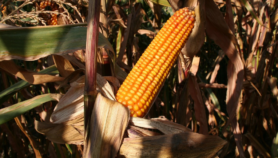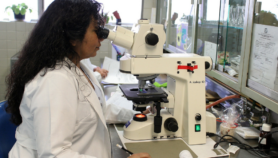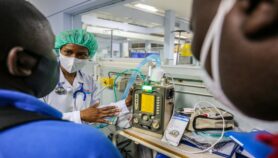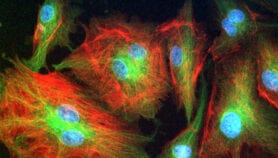By: Charles Mkoka
Send to a friend
The details you provide on this page will not be used to send unsolicited email, and will not be sold to a 3rd party. See privacy policy.
[LILONGWE] Scientists have created a new, affordable technology that allows farmers to detect whether their crops are contaminated with a fungal toxin that causes health problems.
The technology could also be used to keep contaminated crops away from local markets, and will help farmers avoid being fined for delivering contaminated crops for overseas markets.
Aflatoxin is the toxic waste product of two fungi, Aspergillus flavus and Aspergillus parasiticus, both of which occur naturally in air and soil. During drought, the fungi grow on unripe crops — such as groundnuts, cereals, maize, nuts and chilli peppers — or on harvested crops that are not properly dried before storage.
Both Europe and the United States have strict limits on the levels of aflatoxins they allow in crops imported from Africa, and ban imports that exceed those levels, resulting in lost revenues for African farmers.
Scientists from the International Crops Research Institute for the Semi-Arid Tropics (ICRISAT), with support from Consultative Group on International Agricultural Research (CGIAR), have developed an inexpensive method to detect aflatoxins.
The new method utilises enzyme-linked immunoabsorbent assay (ELISA) technology, which uses antibodies to detect aflatoxin proteins, and will cost between US$3–5 per sample.
The test currently used — High Performance Liquid Chromatography, which pre-shipment inspection agents use to test produce before export — costs farmers about US$230 per sample.
The new test is much more affordable to subsistence farmers, says Moses Siambi, country representative of ICRISAT in Malawi.
The test is also available as a kit, so that rural farmers can monitor their own crops. Researchers hope the test can be used in conjunction with other methods that are being developed to combat aflatoxin, such as biological control (see Biological control saves maize from toxic invasion).
ICRISAT has already established diagnostic labs in India, Malawi and Mozambique, which can analyse up to 300 samples in a day, says Rodomiro Ortiz from the International Maize and Wheat Improvement Center.
Duncan Warren, farm services director of the National Smallholder Farmers Association of Malawi, said the test could help farmers to avoid the stringent penalties resulting from aflatoxin contamination. Under European Union rules, crops with unacceptable aflatoxin levels are burned and the farmer must cover the transportation costs.
Siambi said that ICRISAT, in partnership with the National Smallholder Farmers Association of Malawi, has used the test to re-establish Malawian farming on the international market.
Both institutions are currently appealing to the Malawian government to ensure that produce consumed locally is also free of aflatoxin.
Long-term exposure to aflatoxin through contaminated produce can lead to developmental problems in children and liver disease and immune suppression in adults.












